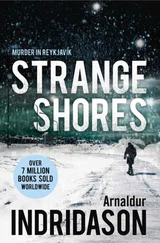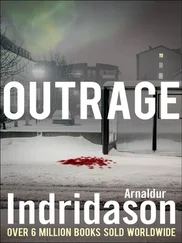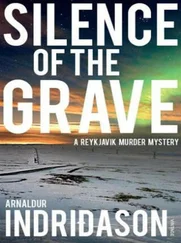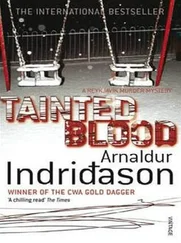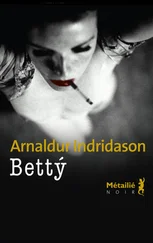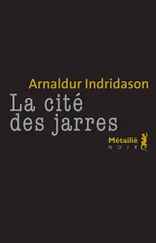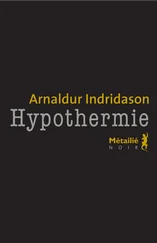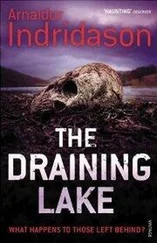“Leave them,” Erlendur said and started to help her.
“The pathologist is examining the body,” she said. “The woman appears to have drowned and on first impression there are no signs of anything suspicious. She’s been in the sea for at least two to three weeks.”
“I should have known better,” Erlendur said.
“So?”
“I made an error of judgement.”
“Come on, you weren’t to know.”
“I should have talked to her instead of being hostile. I judged her for what she had done. And it wasn’t even her.”
Elinborg shook her head.
“That woman phoned me so that I would reassure her and persuade her to help us, because she knows it’s the right thing to do. And I reacted by cutting her off. She knows something about Elias’s murder. A woman of uncertain age with a slightly husky voice, perhaps from smoking. Now, after the event, I realise how worried and frightened and apprehensive she was. I thought the missing woman and her husband were playing some kind of game. I couldn’t understand it. Couldn’t work out what they were up to and it got to me. Then it turns out I’d got the wrong end of the stick entirely.”
“What was she thinking of? Why did she throw herself in the sea?”
“I think . . .” Erlendur trailed off.
“What?”
“I think she’d fallen in love. She sacrificed everything for love: family, children, friends. Everything. Someone told me she had changed, become a different person. As if she’d found a new lease of life, discovered her true self during that time.”
Erlendur stopped again, lost in thought.
“And? What happened?”
“She found out that she’d been deceived. Her husband had started cheating on her. She was humiliated. All her . . . everything she had done, everything she had sacrificed, was for nothing.”
“I’ve heard about men like that,” Elinborg said. “They’re addicted to the first flush of passion and when that begins to fade, they go looking for it elsewhere.”
“But her love was genuine,” Erlendur said. “And she couldn’t bear it when she found out that it wasn’t reciprocated.”
Sigurdur Oli rang the doorbell at the entrance to a four-storey block of flats close to the school. He stood and waited, then rang the bell again. A cold wind blew about his legs in the meagre shelter by the front door and he stamped his feet. It seemed no one was home. The block, which was not unlike the one where Sunee lived with her sons, was in a poor state of repair. It had not been painted for a long time and the wall by the entrance was still stained with soot from a fire in the rubbish store. Dusk was falling. The morning’s snow flurries had deteriorated into a blizzard, cars were getting stuck on the roads and the Met Office had issued a severe weather warning for that evening. Sigurdur Oli’s thoughts went to Bergthora. He had not heard from her all day. She had already left for work when he woke up at the crack of dawn and lay alone with his thoughts.
The entryphone emitted a crackle.
“Hello?” he heard a voice say.
Sigurdur Oli introduced himself, explaining that he was from the police.
There was silence on the entryphone.
“What do you want?” the voice asked eventually.
“I want you to open the door,” Sigurdur Oli said, stamping his feet.
A long moment passed before the lock clicked and Sigurdur Oli entered the hall. He climbed up to the landing where the owner of the voice lived and knocked on the door. It opened and a boy of about fifteen peered shiftily into the corridor.
“Are you Anton?” Sigurdur Oli asked.
“Yes,” the boy said.
He appeared in pretty good health considering; he was fully dressed and even had a little colour in his cheeks. Sigurdur Oli noticed a smell of pizza from inside the flat and when he peered inside he saw an anorak slung over a chair and an open pizza box with one slice missing. He had been informed that Anton was ill and had been absent from school for the last few days.
“Feeling better?” Sigurdur Oli asked, walking into the flat uninvited.
The boy retreated before him and Sigurdur Oli shut the door. He noticed that the boy had made himself comfortable in front of the television with a pizza and a fizzy drink and two or three videos. An action film was playing on the screen.
“What’s going on?” the boy asked in astonishment.
“It’s one thing to scratch cars, Anton, another to kill people,” Sigurdur Oli said, helping himself to a slice of pizza. “Your mum and dad not home?”
The boy shook his head.
“Several days ago you were spotted scratching a car near here,” Sigurdur Oli said and bit into the pizza. He watched the boy while he chewed.
“I haven’t scratched any cars,” Anton said.
“Where did you get the knife?” Sigurdur Oli asked. “And don’t lie to me.”
“I…” Anton hesitated.
“Yes?”
“Why do you say kill people?”
“The little Asian boy who was stabbed, I reckon you did that too.”
“I didn’t do that”
“Sure you did.”
“I haven’t done anything,” Anton said.
“Where can I get hold of your mother?” Sigurdur Oli asked. “She’ll need to come down to the station with us.”
Anton stared in bewilderment at Sigurdur Oli who calmly finished his pizza slice and surveyed the flat, as if Anton were an irrelevance. The medical student had identified the boy from a recent class photograph. She believed that he was one of the two boys she had seen outside the block of flats when her car was scratched. She was not quite so sure when shown a picture of Anton’s classmate Thorvaldur, though she said that he could well have been the other boy. It was all very vague so Sigurdur Oli did not have much to go on when he rang Anton’s doorbell. He decided to behave as if it was an open-and-shut case, and all that remained was to take the two friends down to the station. A mere formality. This tactic seemed to work on the boy.
Sigurdur Oli did not as yet have much information on Anton and Thorvaldur. They were in the same class, spent a lot of time together and sometimes got into trouble with the teachers and school authorities; disrupting school activities, it was called. Once they had attacked a caretaker and received a two-day suspension. They were typical wasters and troublemakers who only turned up to school to ruin things for everyone else.
“I didn’t stab anyone,” Anton said at Sigurdur Oli’s mention of his mother and the police station.
“Call your mother,” Sigurdur Oli said. “Tell her to meet us down at the station.”
Anton saw that Sigurdur Oli was in deadly earnest. This cop actually believed that he had stabbed the Asian boy. He tried to grasp the situation in which he suddenly found himself but could not quite take it in. They had vandalised a few cars, Doddi had done most of them, he himself maybe one, and now they had been caught. But the cop was also under the impression that he had attacked and killed that boy. Anton stood dithering in front of Sigurdur Oli, examining his options. His mother would go mental — again. She had often threatened to chuck him out. He looked at the video he had rented and the congealing pizza and the strange thing was that what he regretted most was being deprived of a quiet day in front of the television.
“I didn’t do anything,” he repeated.
“You can tell that to your mother,” Sigurdur Oli said. “Your mate Thorvaldur lost no time in squealing on you. Whined and blubbered throughout. He says you scratched the cars. He says he only went along with you.”
“Doddi? He said that?”
“The biggest wimp I’ve ever come across,” Sigurdur Oli said, though he had not, in fact, tracked Thorvaldur down yet.
Читать дальше


